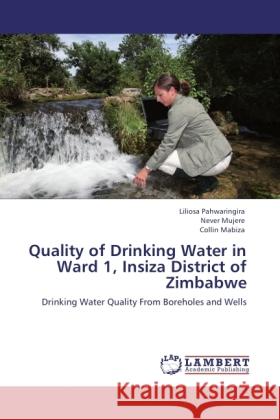Quality of Drinking Water in Ward 1, Insiza District of Zimbabwe » książka
Quality of Drinking Water in Ward 1, Insiza District of Zimbabwe
ISBN-13: 9783846500590 / Angielski / Miękka / 56 str.
Surface and groundwater resources play a pivotal role in the socio-economic development of every nation. Availability of water, its quantity and quality are still major challenges in most rural areas of developing countries. Most people in rural areas use untreated borehole water for domestic purposes. Most of these boreholes broke up a few years after installation, thus causing people to use unprotected water from wells and creating a health risk. Water quality monitoring from wells and boreholes has been lacking in most rural areas of Zimbabwe. Data on the quality of water from these sources is not readily available in rural areas. This dissertation presents results of a study conducted to assess the quality of drinking water in ward 1 of Insiza District in Zimbabwe. The study was carried out in February 2009. Water samples collected 23 boreholes and 7 wells were analyzed for physical and chemical parameters. Measured water quality parameters were pH, electrical conductivity, calcium (Ca), nitrates (N03), hardness, iron (Fe) and total dissolved solids (TDS). Results indicate that water quality from boreholes and wells is acceptable to drinking as all the parameters were within











